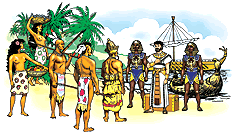Most research papers contain information that is shared with other researchers interested in the research topic. Without translating the abstract, the authors of the paper would not be able to share their findings or theories with researchers whose languages differ. Likewise, without such translation, the content of articles written by researchers in a language other than yours will not be accessible.
Most scientific articles usually use scientific terminology with very specific meanings, and the translator`s task is not only to convey the exact meaning of the abstract, but also to provide accurate equivalent translations of the terminology, units.
Professional translators who offer translation of scientific documents, including abstracts, help make scientific and other discoveries accessible to a wider audience.
It is advisable for a translator whose job it is to translate an article to have some experience in the subject being discussed in the article, but it is not necessary to be an expert in a particular topic. It is also advisable for the translator to review the article before translating the abstract, so that if any questions arise regarding the meaning or terminology, they can be discussed with the author of the abstract before translation.
Algorithm for creating high-quality abstract translation
1. Identification of the main provisions of scientific work.
2. Paraphrasing its main points.
3. Identifying the parts that are important to the semantics of the work.
4. Transformation of semantics into the target language.
5. Translation of the semantic part into the target language.
6. Presentation of text abstracts in a structured form.
Most abstracts are relatively short pieces of text, so the actual translation is unlikely to take much time. A well-written "summary" of a research paper in the original language should give the reader a sufficient understanding of the content of the research paper without having to read the entire paper.


